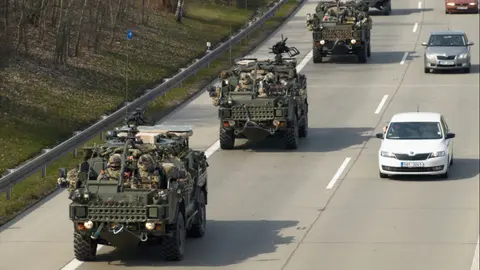Persecuted for their Faith
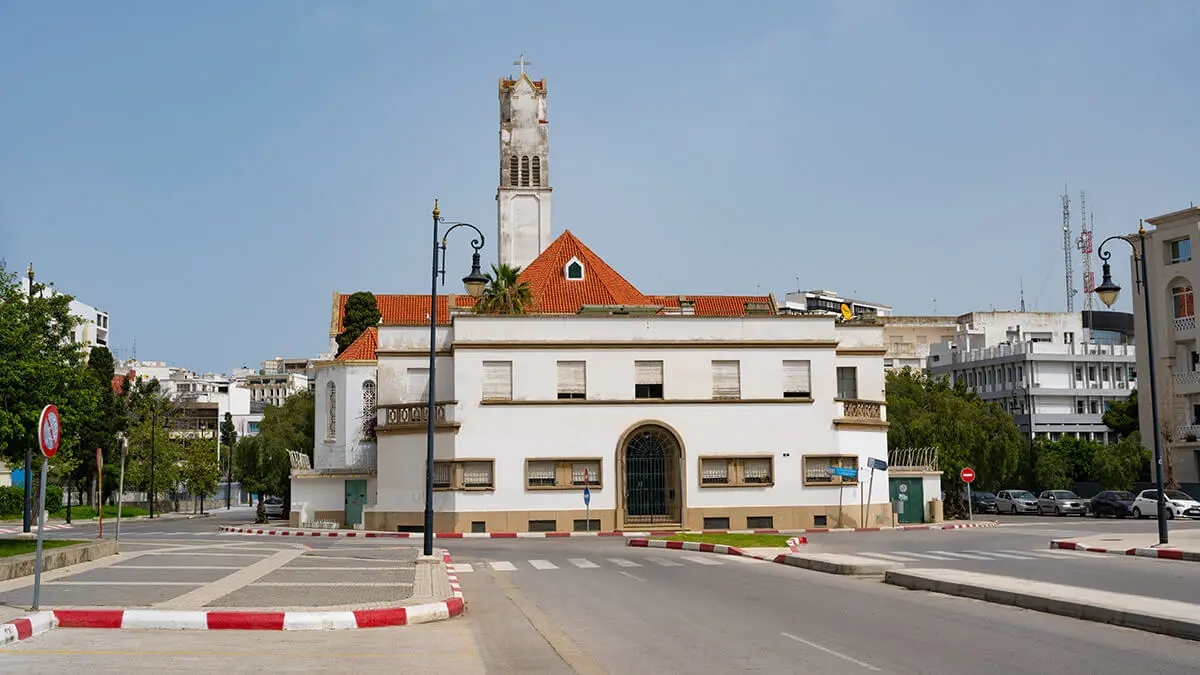
On numerous occasions, we have drawn attention in this space to conflicts or regions that either enjoyed a certain prominence at the time, only to later fade from the media spotlight, or that go unnoticed in the shadow of problems we consider much greater.
Today, however, we want to focus our attention on an issue that in other circumstances someone would not hesitate to describe as genocide and yet, for some reason that is difficult to understand, it goes virtually unnoticed, deserving only a few lines in the digital media from time to time and, of course, not receiving the slightest reflection on the main television channels.
Some may find this exaggerated, but the facts speak for themselves. In the 21st century, where globalisation governs all our relationships, with an international community concerned about the future of the planet and the climate, where organisations such as the United Nations are focusing their efforts on establishing sustainable development goals, we find ourselves living in a time of growing and brutal religious persecution, with Catholics and other Christians as the protagonists of singular suffering.
This harassment takes various forms, ranging from subtle discrimination within different models of society to extreme violence, which is neither sporadic nor isolated and occurs mainly in Asia, the Middle East and Africa. It is probably on the African continent that this dark reality takes on much more sombre and painful overtones, manifesting itself in mass killings, forced displacement of populations and forms of oppression that in any other case would be condemned by the international community as ethnic cleansing. We are undoubtedly facing a silent and partly silenced humanitarian crisis.
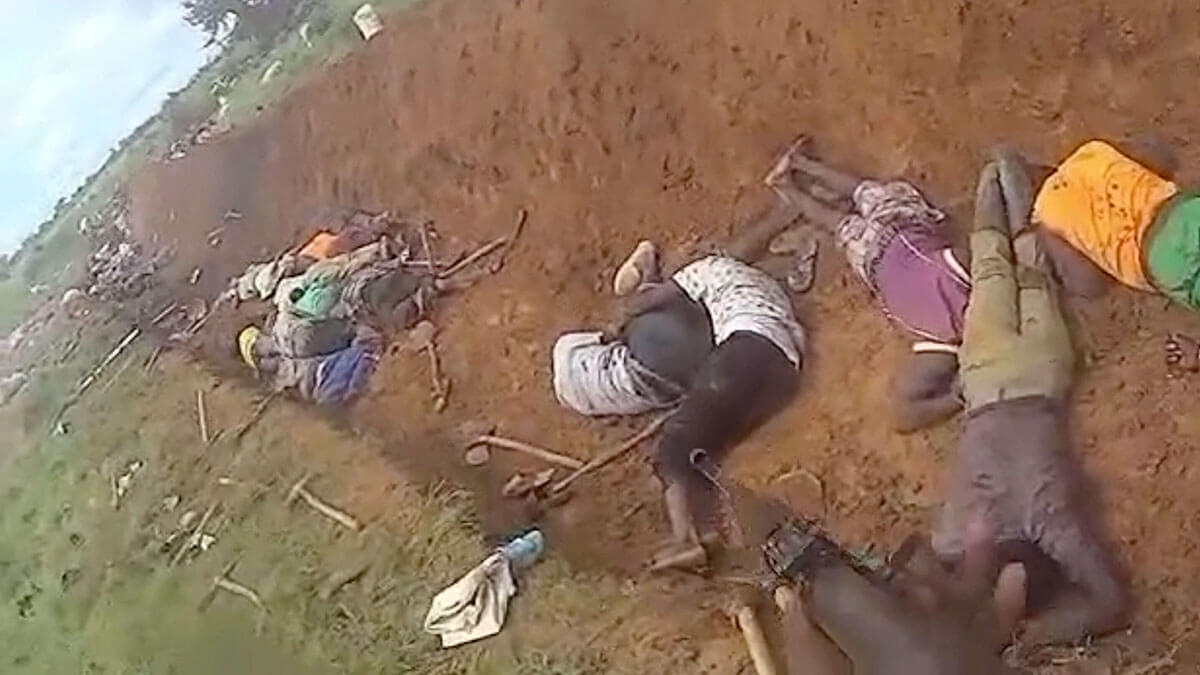
The organisation Open Doors, dedicated to providing support and assistance to persecuted Christians around the world, warns of the constantly growing number of Christians suffering harassment for their faith, to the point that the figure has multiplied exponentially, even more so during the last decade.
The data for the last year is overwhelming. During 2024, it is estimated that more than 365 million Christians, both Catholic and of other denominations, have lived under the constant threat of discrimination, violence and displacement. This figure represents one in seven Christians worldwide, and the phenomenon has intensified dramatically in certain regions, driven by a mixture of religious nationalism, Islamic extremism and the fragility of many of the states where this situation occurs.
Within this landscape, Africa can be considered the epicentre of religious persecution against Catholics. The African continent, home to one of the fastest-growing Christian populations, has become the epicentre of anti-Christian violence.

Many factors converge to create the perfect breeding ground for this religious persecution, including political instability, overwhelming levels of corruption of all kinds, poverty and the growing presence of jihadist groups in increasingly large areas.
Although religious violence against the Christian minority in the Sahel region is increasing at a rapid pace, Nigeria is undoubtedly the country where this phenomenon is most prevalent. What we might call the ‘middle belt’ of the country, a Christian-majority region, has been the scene of constant massacres, perpetrated mainly by Muslim Fulani herdsmen and, on the other hand, by what is probably the most bloodthirsty jihadist group on the entire continent, Boko Haram, although such actions are increasingly being attributed to the Daesh-affiliated group in the region, ISWAP, a staunch rival of the former. These attacks, which are often attributed to land disputes, are clearly religious in nature, with the assailants specifically targeting Christian communities, burning churches and murdering priests and worshippers, often taking advantage of particularly crowded celebrations.
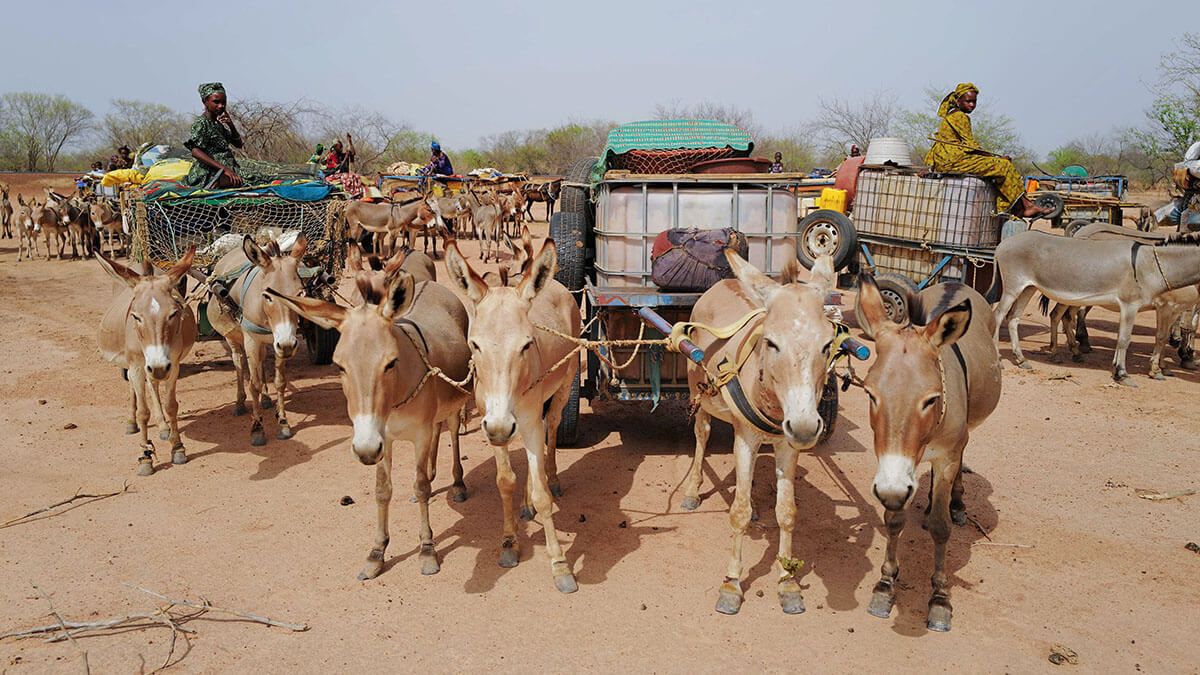
An example of this is the Christmas Eve massacre of 2023, which has emerged as one of the most tragic episodes in recent years. On that day, in Plateau State, hundreds of attackers stormed more than 30 villages, shooting indiscriminately and setting houses on fire. More than 300 people lost their lives during the attack. Most of the victims were Christians preparing for Christmas celebrations. The local bishop, Michael Gobal Gokum, testified to the horror experienced in the community, while Aid to the Church in Need (ACN) provided emergency assistance to the victims and the thousands of internally displaced persons who fled the area for fear of further similar attacks. This attack, and many others on a smaller scale, demonstrates the impunity with which those responsible operate, as there were no consequences or arrests, as well as the lack of effective protection from the Nigerian government.
More recently, we have another clear example of this deadly persecution. On 15 June this year, there was an attack on displaced persons in Benue State, where a large part of the population, especially in the Makurdi region, around 95%, are Catholic. During the night, shouting ‘Allahu Akhbar’, a group of jihadists set fire to a temporary refugee shelter. Those who managed to escape the flames were killed with machetes. The death toll reached just over two hundred. The fact that the attack took place in a theoretically safe area highlights the extreme vulnerability of those who profess the Catholic faith in Nigeria. The Foundation for Justice, Development and Peace (FJDP) of the Diocese of Makurdi has documented this and other attacks, pointing out that the aim of this violence is to force Christian communities to abandon their ancestral lands.
Beyond Nigeria, the crackdown is spreading throughout the Sahel and other African regions. In Burkina Faso, Cameroon and the Democratic Republic of Congo, jihadist groups affiliated with al-Qaeda or the Islamic State have intensified their attacks on Christian communities. In this case, priests and religious are priority targets, and many of them have been kidnapped or killed. The aim is to destabilise the region and eradicate any non-Islamic presence.
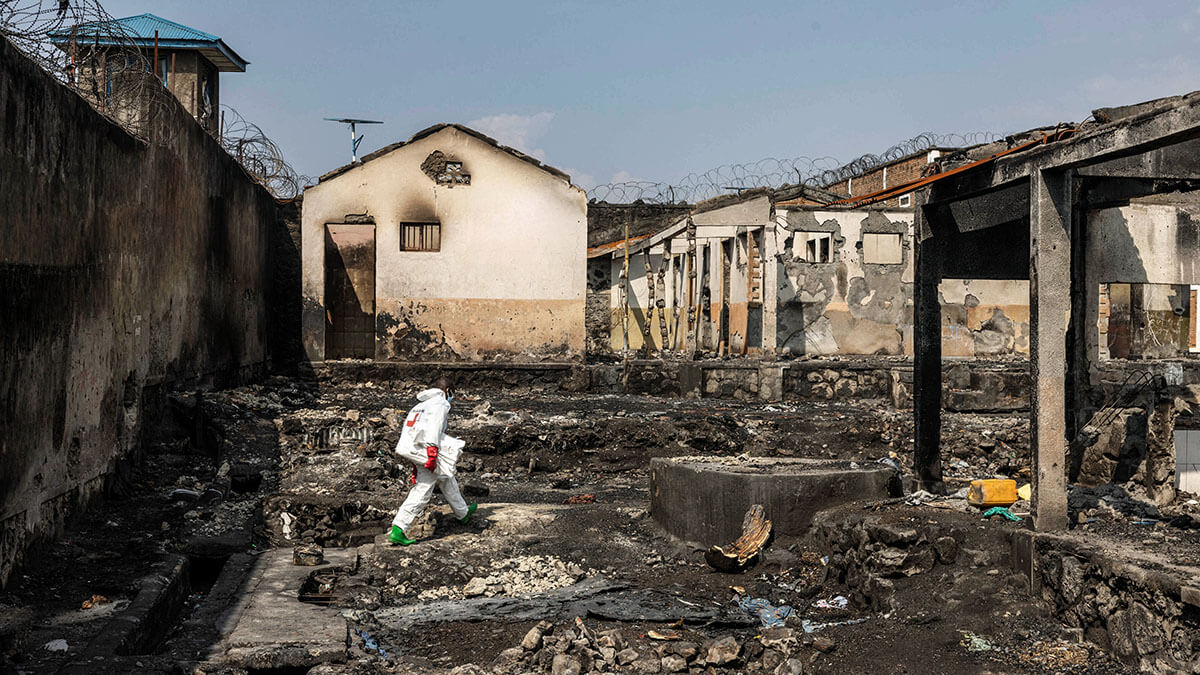
In the Middle East, the cradle of Christianity, Christian communities have been decimated by war, sectarian violence and extremism. Although media attention has focused on the broader conflicts, the persecution of Christians has been a constant and tragic factor in all of them.
The establishment of the Daesh Caliphate in Iraq and Syria has left deep scars. Although its control of territory was relatively short-lived and the areas controlled by Daesh are very localised, the legacy of its violence lives on. Christian communities, which once flourished in the Nineveh Plains, have been decimated. Historic churches have been destroyed, and thousands of Christians have been killed, kidnapped or forced to flee. Although some have attempted to return, threats to their safety are constant, as is systemic discrimination, which in many cases takes the form of denial of access to basic services. The presence of sectarian militias, instability and the inability of governments to guarantee security make return almost impossible for many.
Even in Egypt, a country that a priori seems to offer more guarantees, we find evidence of this persecution. The Coptic Christian community, which represents the largest Christian minority in the Middle East, lives under constant threat of violence and discrimination. Although the government has taken some measures to protect churches, attacks by Islamic extremists remain a real danger. Christians are often victims of kidnapping for ransom, and the construction of churches remains a complicated process, restricting the growth of the community.
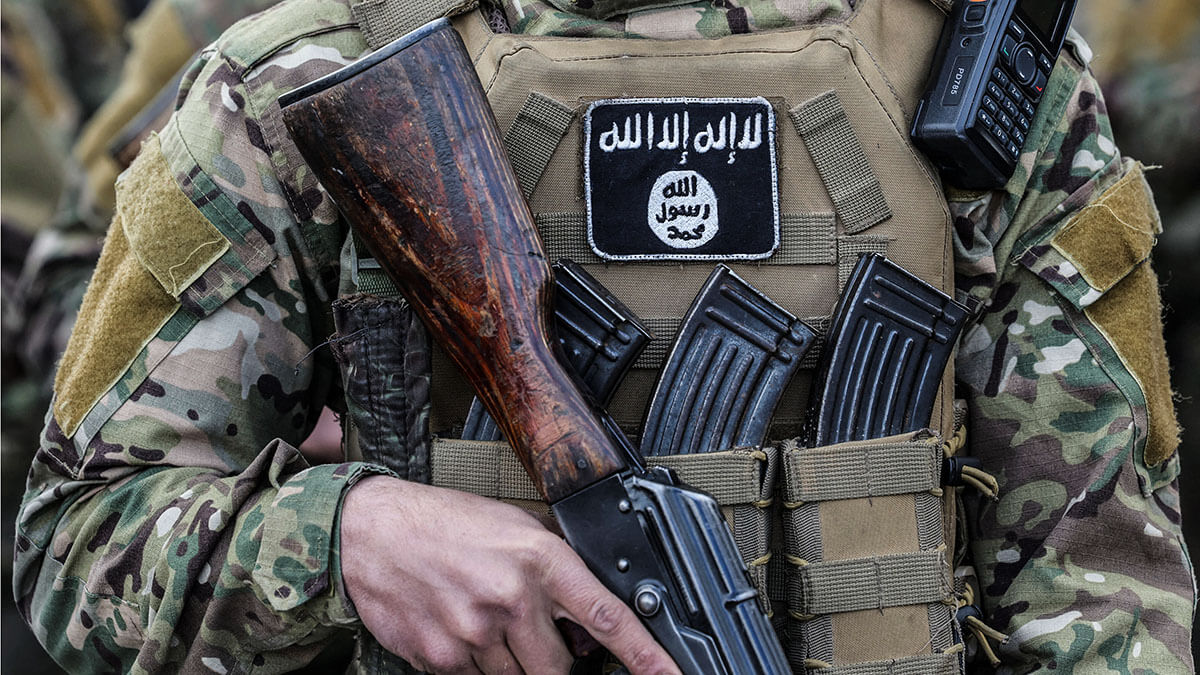
In Asia, the persecution of Christians takes on a different tone, coming not only from Islamic extremism but also from the rise of religious nationalism, an ideology that promotes the supremacy of a majority religion and views minorities as a threat to national identity. India is a clear example of this trend. Under the government of the Hindu nationalist BJP party, violence against Christians has increased alarmingly. Christians are falsely accused of forced conversion, a charge often used to justify attacks on churches, pastors and worshippers. Hindu extremist groups, with the tacit complicity of local authorities, attack Christian communities with impunity. The attacks range from burning churches to physical assaults on priests and intimidation of worshippers. In the state of Manipur, ethnic clashes have taken on a religious dimension, with dozens of churches burned down and thousands of people displaced.
In neighbouring Pakistan, Christians, who are a small and impoverished minority, are constantly targeted by extremist violence. The country's blasphemy laws are a recurring and effective weapon used to persecute them. A simple accusation of blasphemy can trigger a violent mob and the destruction of entire Christian neighbourhoods. The clearest example is the case of Catholic Asia Bibi, who was sentenced to death for blasphemy and spent years in prison before being acquitted after years of international pressure. This is a notorious example of the abuse of these laws. In 2023, a mob set fire to dozens of churches and homes in the city of Jaranwala after rumours spread that two Christians had desecrated a Quran.
The persecution of Catholics and Christians in general in Asia, the Middle East and Africa is a humanitarian crisis that often goes unnoticed in the Western media. The death toll, mass displacement and destruction of ancient communities are a reminder that religious freedom, a fundamental human right, is far from being a universal reality. The killings in Nigeria, the attacks in Pakistan and the oppression in India are just the tip of the iceberg of a pressing problem that demands a response from the international community.

The Catholic Church, through organisations such as ACN, continues to provide assistance to victims and denounce persecution. However, concerted action by governments, international organisations and civil society is needed to address the root causes of this violence, ensure the protection of religious minorities and bring the perpetrators to justice.
Just one more point. According to the latest report by the organisation Open Doors, in 2024 almost 5,000 Catholics were killed because of their faith. However, there are no references beyond these annual reports, although taking the data year by year, it can be said that the figure for the last decade exceeds 50,000, 50,000 lives taken because of their religion, to which almost no attention is paid. We should ask ourselves why.



